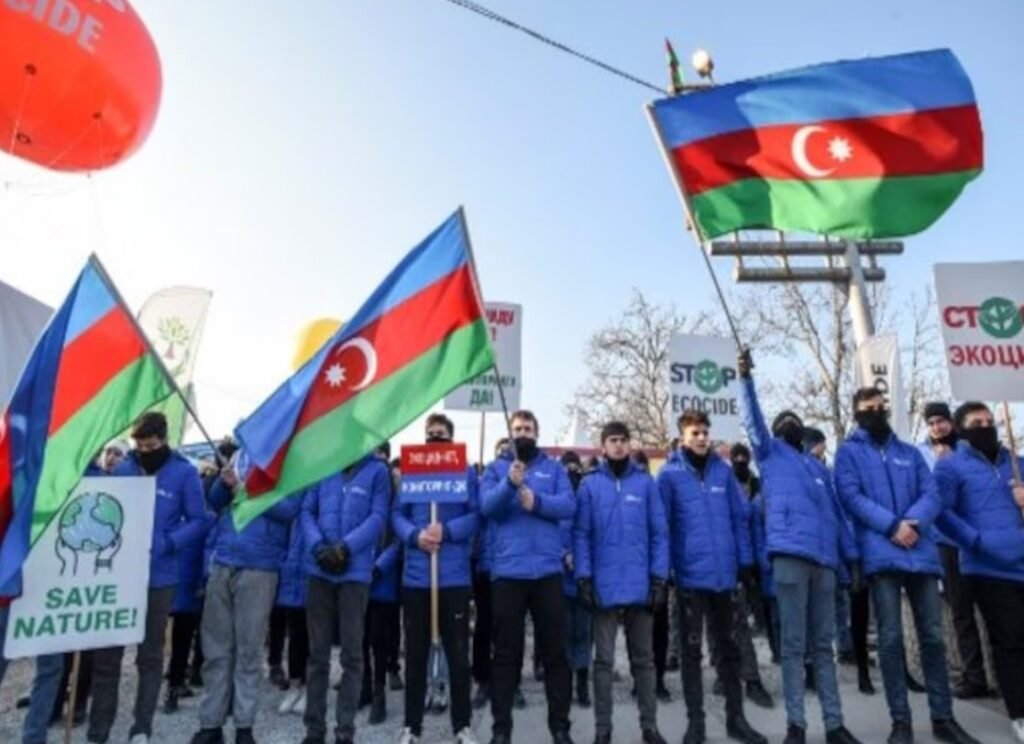More than 3,000 ethnic Armenians have fled their homes in Nagorno-Karabakh, a disputed region in the South Caucasus, after Azerbaijan seized control of the area last week. The refugees crossed into Armenia, where they were welcomed by the government and local residents. Many of them said they had lost everything and did not expect to return to their homeland.
Nagorno-Karabakh is internationally recognized as part of Azerbaijan, but it has been controlled by ethnic Armenians since the early 1990s, when they fought a war against Azerbaijan with the support of Armenia. The conflict reignited in 2020, when Azerbaijan launched a military offensive to reclaim the region, backed by Turkey. A ceasefire brokered by Russia ended the fighting in November 2020, but left Azerbaijan in control of most of Nagorno-Karabakh and surrounding territories.

The Armenian government said it had plans to accommodate up to 40,000 refugees from Nagorno-Karabakh, and provide them with humanitarian assistance and housing. However, it also warned that those who stayed in the region could face ethnic cleansing by the Azerbaijani authorities.
Armenia claims Azerbaijan is violating human rights
Armenian Prime Minister Nikol Pashinyan said in a televised address on Sunday that the Armenians of Nagorno-Karabakh still faced the danger of ethnic cleansing. He said that Azerbaijan had not provided “real living conditions” and “effective mechanisms of protection” for the ethnic Armenian population, and that many of them would see “expulsion from the homeland as the only way out”.
He also accused Azerbaijan of violating the ceasefire agreement and the human rights of the Karabakh Armenians. He said that Azerbaijan had not allowed access for humanitarian aid, international observers, and journalists to the region, and that it had committed atrocities against civilians and prisoners of war. He called on the international community to intervene and prevent a humanitarian catastrophe.
Azerbaijan has denied these allegations, and said that it wants to reintegrate the Karabakh Armenians as “equal citizens”. It has also accused Armenia of using the Lachin corridor, a vital road connecting Nagorno-Karabakh to Armenia, to smuggle weapons and fighters into the region. Azerbaijan has blockaded the corridor since December 2022, causing severe shortages of food, medicine, and fuel in Nagorno-Karabakh.
Russia plays a key role in maintaining peace
Russia has been the main mediator and peacekeeper in the Nagorno-Karabakh conflict, as it has close ties with both Armenia and Azerbaijan. It has deployed about 2,000 troops to the region to monitor the ceasefire and guard the Lachin corridor. It has also facilitated the exchange of prisoners and bodies between the two sides.
However, Russia’s role has been challenged by other regional powers, especially Turkey, which has strongly supported Azerbaijan and its territorial claims. Turkey has also sent military advisers and drones to Azerbaijan, and has participated in joint military exercises with it. Turkey has also expressed interest in joining a peacekeeping mission in Nagorno-Karabakh, which Armenia has rejected.
Russia’s attention and resources have also been diverted by its invasion of Ukraine, which has sparked a major crisis in Europe. Some analysts have suggested that Russia’s involvement in Ukraine may have emboldened Azerbaijan to launch its offensive in Nagorno-Karabakh, as it saw an opportunity to exploit Russia’s distraction. Others have argued that Russia may have used its influence over Armenia to pressure it into accepting a ceasefire that favored Azerbaijan.
The future of Nagorno-Karabakh remains uncertain
The ceasefire agreement signed by Armenia, Azerbaijan, and Russia on Wednesday has brought an end to the latest round of violence in Nagorno-Karabakh, but it has not resolved the underlying issues of the conflict. The status and fate of Nagorno-Karabakh remain unclear, as neither side has recognized its independence or sovereignty.
The agreement stipulates that the local Armenian government in Nagorno-Karabakh should disband its military forces and hand over all weapons and equipment to Azerbaijan. It also provides for negotiations between Azerbaijan and Armenia on the future of the region, under the auspices of Russia. However, it is unclear how these talks will proceed, and whether they will involve representatives from Nagorno-Karabakh or other international actors.
The agreement has also sparked protests and political turmoil in both countries. In Armenia, thousands of people have taken to the streets to demand the resignation of Pashinyan, whom they accuse of betraying their national interests and surrendering their lands to Azerbaijan. In Azerbaijan, some people have celebrated their victory and reclaimed their ancestral homes in Nagorno-Karabakh, while others have expressed dissatisfaction with the ceasefire and called for more territorial gains.
The situation in Nagorno-Karabakh remains fragile and volatile, as reports of sporadic clashes and violations of the ceasefire continue to emerge. The humanitarian crisis in the region is also worsening, as thousands of people are displaced, injured, or killed. The international community has called for a lasting and peaceful solution to the conflict, and urged both sides to respect human rights and international law.
